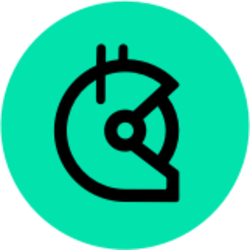
Bitcoin: Censorship Protocol or Merely a 'Spam Filter'?
- Decentralization and Censorship: A Heated Debate in Blockchain
- Bitcoin Community Divided Over Transaction Filtering
- Blockchain Innovators: The Year's Most Influential Figures
- Controversy Over Filtering 'Spam' Transactions
- Further Developments
- Blockchain Tech Upgrades and Developments
- Upcoming Events
Decentralization and Censorship: A Heated Debate in Blockchain
Decentralization's ability to combat censorship imposed by governments or powerful private institutions is a fundamental principle of blockchain. However, there are varying interpretations of what constitutes censorship, which sparks debates across different blockchains.
Bitcoin Community Divided Over Transaction Filtering
An intense discussion within the  Bitcoin$42,260 -0.64% community has surfaced regarding a mining pool's decision to filter transactions associated with Ordinals inscriptions, informally known as NFTs on Bitcoin. A more official type of censorship is occurring on the
Bitcoin$42,260 -0.64% community has surfaced regarding a mining pool's decision to filter transactions associated with Ordinals inscriptions, informally known as NFTs on Bitcoin. A more official type of censorship is occurring on the  Ethereum$2,315 -2.42% blockchain, where numerous data-block builders are evading transactions subject to financial sanctions by the U.S. Government.
Ethereum$2,315 -2.42% blockchain, where numerous data-block builders are evading transactions subject to financial sanctions by the U.S. Government.
Blockchain Innovators: The Year's Most Influential Figures
The annual Most Influential list, while not a ranking, highlights blockchain developers who have significantly influenced the year's biggest trends and surprises in Bitcoin and technological advancements in cryptocurrency. Among those recognized is Casey Rodarmor, an artist who pioneered Ordinals, or Bitcoin NFTs.  Lido DAO$2.64 -10.86%, an organization dominating the Ethereum staking landscape, is also mentioned. Other influential figures include
Lido DAO$2.64 -10.86%, an organization dominating the Ethereum staking landscape, is also mentioned. Other influential figures include  Polygon$0.967 -3.65%'s Jordi Baylina, an early auditor of Solidity smart contracts, and Avery Ching, a key developer behind the Aptos blockchain.
Polygon$0.967 -3.65%'s Jordi Baylina, an early auditor of Solidity smart contracts, and Avery Ching, a key developer behind the Aptos blockchain.
Controversy Over Filtering 'Spam' Transactions
A new mining pool called Ocean, led by developer Luke Dashjr and supported by Block Inc.'s Jack Dorsey, has stirred up controversy by attempting to eliminate NFT-like transactions deemed as spam. This decision, which aims to keep the Bitcoin blockchain uncluttered for payments, has been criticized as censorship by some members of the community. However, Dashjr insists that the move is a necessary spam filter and claims that Bitcoin Core, the software used by most users to access the blockchain, has a long-standing vulnerability exploited by spammers. Despite this controversy, many miners continue to process these transactions due to their profitability.
Further Developments
In other news, the Ethereum layer-2 project known as Blast is now hiring after receiving criticism for taking deposits exceeding $750 million despite its network launch still being months away. Elsewhere, the United National Development Programme is launching a blockchain academy in partnership with the Algorand Foundation, and the American Cancer Society is running a Quadratic Funding round using  Gitcoin$1.41 -5.38% Grants Stack, with $75,000 in matching funds.
Gitcoin$1.41 -5.38% Grants Stack, with $75,000 in matching funds.
Blockchain Tech Upgrades and Developments
Mantle has launched Mantle LSP, which aims to offer users instant and sustainable yields directly from Ethereum's PoS validator network. Additionally, TBD, a Bitcoin-centric unit of Jack Dorsey's Block, has introduced the first live components of tbDEX, an open-source protocol allowing financial institutions to facilitate global transactions. Other notable developments include the proposed merger of Umee UX chain with  Osmosis information" data-id="7042">
Osmosis information" data-id="7042"> Osmosis$1.55 -4.43% to form a unified interchain DeFi hub, and RARI Foundation's launch of a new layer-3 chain, RARI Chain.
Osmosis$1.55 -4.43% to form a unified interchain DeFi hub, and RARI Foundation's launch of a new layer-3 chain, RARI Chain.
Upcoming Events
Several blockchain-related events are on the horizon, including Taipei Blockchain Week (Dec. 11-13), Stellar upgrade for Soroban smart contracts (Jan. 30), and Bitcoin++ in Buenos Aires (Feb. 22-24).
How do you like the article?
Join the discussion on
You may also like
 Jonathan Stoker
Jonathan Stoker